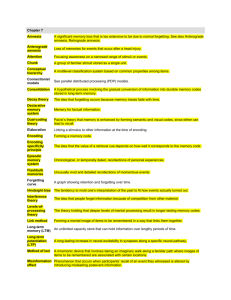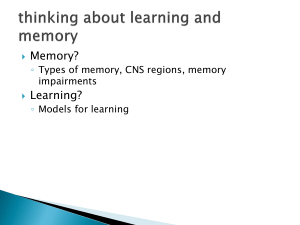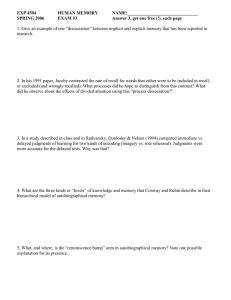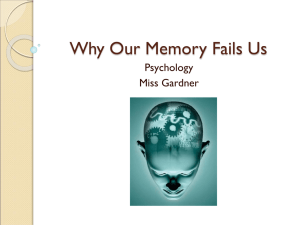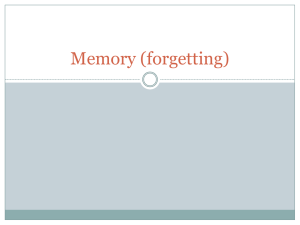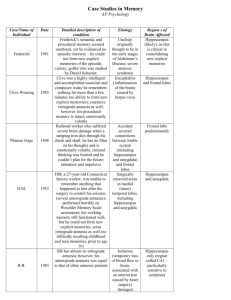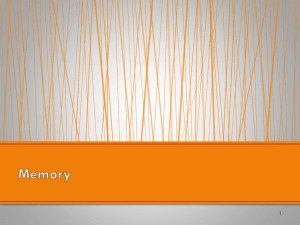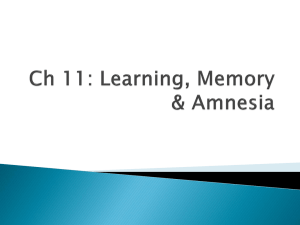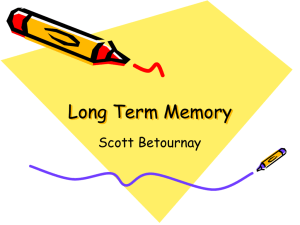Chapter Nine Memory vocabulary and questions
advertisement
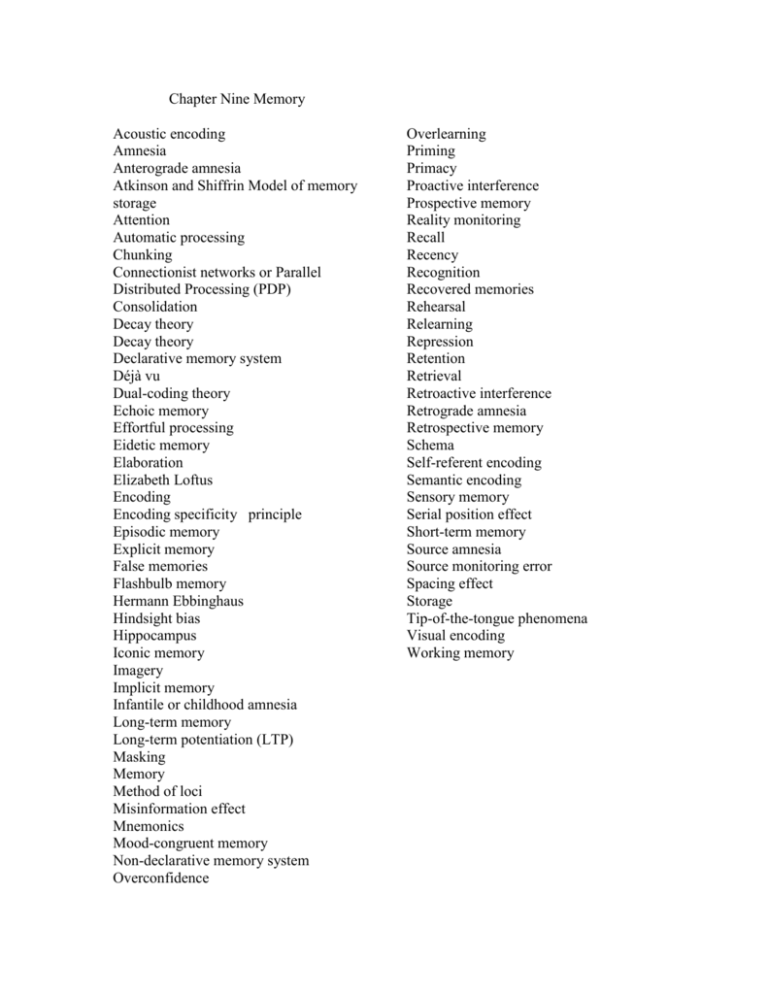
Chapter Nine Memory Acoustic encoding Amnesia Anterograde amnesia Atkinson and Shiffrin Model of memory storage Attention Automatic processing Chunking Connectionist networks or Parallel Distributed Processing (PDP) Consolidation Decay theory Decay theory Declarative memory system Déjà vu Dual-coding theory Echoic memory Effortful processing Eidetic memory Elaboration Elizabeth Loftus Encoding Encoding specificity principle Episodic memory Explicit memory False memories Flashbulb memory Hermann Ebbinghaus Hindsight bias Hippocampus Iconic memory Imagery Implicit memory Infantile or childhood amnesia Long-term memory Long-term potentiation (LTP) Masking Memory Method of loci Misinformation effect Mnemonics Mood-congruent memory Non-declarative memory system Overconfidence Overlearning Priming Primacy Proactive interference Prospective memory Reality monitoring Recall Recency Recognition Recovered memories Rehearsal Relearning Repression Retention Retrieval Retroactive interference Retrograde amnesia Retrospective memory Schema Self-referent encoding Semantic encoding Sensory memory Serial position effect Short-term memory Source amnesia Source monitoring error Spacing effect Storage Tip-of-the-tongue phenomena Visual encoding Working memory of specific events? Why or why not? 1. How might culture affect memory and what you remember? 2. What is the difference between proactive and retroactive interference? Give an example of each. 3. Would you rather have anterograde amnesia or retrograde amnesia? Be sure to explain what each is and why you chose your amnesia type. 4. Relate the serial position affect and primacy and recency to interviewing for a job or admission to a college. 5. Discuss how the hippocampus uses consolidation to lay down memories. 6. Discuss the ways in which memories may be constructed falsely, including misinformation, eyewitness recall, children on the witness stand, source amnesia, and hypnosis. 7. How might source-monitoring errors (part of reality monitoring) influence plagiarism? 8. Develop a plan for ways to improve your memory to help you with your studies. 9. If technological advances would allow it, would you ever want to intentionally get rid of memories


